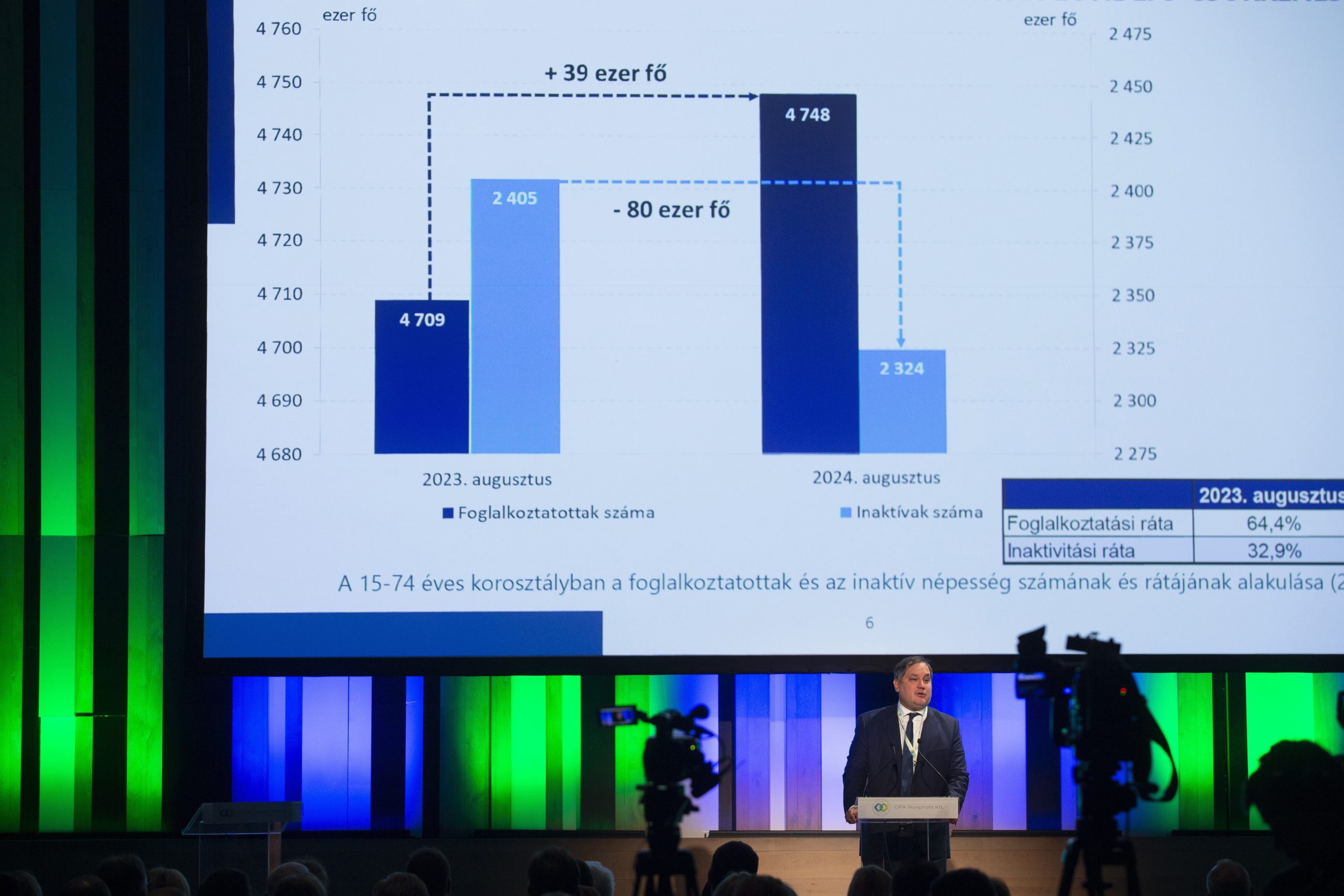
Salaries in Hungary are still way below the EU average. Continue reading

In Slovakia, the minimum wage will rise to 60 percent of the national average wage in 2024 from 2026, writes Világgazdaság. This means it will rise to EUR 816 next year, up from EUR 700 last year and EUR 750 this year. However, it will not stop there, as it could increase to EUR 920 in 2026, and EUR 970 a year later. This step is similar to the one introduced by the Minister of National Economy in Hungary a few weeks ago.
The new methodology will lead to a spectacular increase in the minimum wage for Slovaks, currently standing at 57 percent:
from EUR 700 last year to EUR 750 this year, it will rise to EUR 816 next year.
Labor Minister Erik Tomáš said that based on the projected national average salary, it could then rise to EUR 920 in 2026, and EUR 970 in 2027.
Some 200,000 workers in Hungary’s northern neighbor will be affected by the minimum wage increase. The picture is somewhat complicated by the fact that night, weekend, and holiday allowances will be calculated on the basis of the current minimum wage, which will impose a significant additional burden on employers.
Employers’ associations estimate that this change (from 57 to 60 percent) could cost companies EUR 110 million more. Furthermore, the Slovak state will also bear a heavy burden from the minimum wage increase, as the lowest categories of civil servants’ pay scales now start well below the current minimum wage.
“Friday will mark one year since Robert Fico‘s fourth government took office, and I am pleased to announce that in such a short time we have managed to implement two measures that were flagship issues in the government program,” Tomáš pointed out. He also recalled that in addition to the amendment of the minimum wage law, the Slovak cabinet had already ticked off the issue of the 13th month pension.
The case is similar in Hungary, as according to the Ministry for National Economy, real wages continued to grow at an outstanding rate in August, with purchasing power of wages rising by 9.4 percent in the last month of the summer, thanks to inflation remaining stable and low, along with substantial wage growth.
The Hungarian government aims to raise the minimum wage to EUR 1,000 and average earnings to HUF 1 million (EUR 2,481) gross by 2028.
A few weeks ago, Minister for National Economy Márton Nagy detailed the expected wage growth rate for the coming years. He also shared a chart of the expected increase in minimum wages and average gross earnings in the coming years.

Photo: MTI/Kocsis Zoltán
The chart also included increases in the minimum wage and guaranteed minimum wage (for skilled workers) for the coming years. According to those data, the mandatory minimum wage could increase by 12 percent next year, while the guaranteed minimum wage could rise by 10 percent.
Via Világgazdaság; Featured image via Pixabay